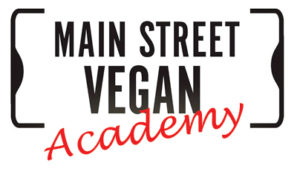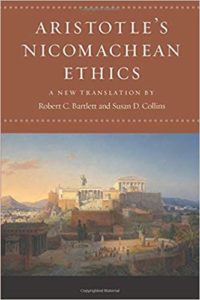Veganism and “Flourishing”
Posted in: Activism, community, eating vegan, Environment, Plant-Based, Vegan Living
Tags: animal agriculture, living vegan, Vegan, vegan activism
I am filled with despair. Most days.
 This past May I participated in a training program to become a certified vegan lifestyle coach and educator. I took Victoria Moran’s Main Street Vegan Academy (MSVA) – a 6-day intensive program for vegans.
This past May I participated in a training program to become a certified vegan lifestyle coach and educator. I took Victoria Moran’s Main Street Vegan Academy (MSVA) – a 6-day intensive program for vegans.
I decided to sign up for MSVA because I wanted to discover how I might spend the next part of my life helping to make the world a better place for the animals, where they can pursue their own interests without the specter of a horrific death at the hands of humans.
For the Academy, there was a fairly intense pre-program reading list, which I am still working on because, among other things, the reading is pretty much despair-inducing. If you’re a vegan, or just know anything about industrial animal agriculture, you know what I mean. I have to start and stop reading in order to preserve my mental health.
I have to read bits at a time and recognize when I am beginning to sink into despair. I signed up for the course without a lot of lead time so when I received the reading list I immediately bought all of the books I didn’t already have and began reading voraciously – I had a lot of land to cover. That’s when I first noticed it.
I started feeling extremely depressed and hopeless; resenting folks (even my husband) who could go about their day without a seeming care in the world when I knew on any given day that 150 million land animals were being slaughtered for human (and other animals’) consumption; if you include the number of wild-caught and farmed fish, that number skyrockets to 3 billion – daily (sentientmedia.org – “How Many Animals Are Killed for Food Every Day”). The Amazon Rainforest continues to be cleared at a rapid rate to make room for cattle grazing operations, indeed nearly 20% of the Amazon, dubbed “the lungs of the planet,” has been cleared in the last 50 years (worldwildlife.org, “Deforestation and Degradation”) – and one doesn’t need to be too imaginative to think about where all that manure goes(!). And perhaps most disturbingly (although the threshold seems to drop by the second to lower and lower depths), close to a quarter of the world’s freshwater is devoted to livestock, yet several hundreds of millions of people live with water scarcity – the one thing humans cannot live without (Eat for the Planet, p.35). I could go on and on and on.
So I stopped. It was despair-inducing.
I would go days without reading in order to replenish any sense of hope, even normalcy; I would mostly tune out, but then, of course, the guilt would set in. So I would begin the cycle again, a back and forth reading to despair and completely tuning out. I knew I needed a different approach in order to thrive, in order to flourish.
I became vegan nearly four years ago for the (non-human) animals. Over these four years as I read and researched more about it, I came to think of the “animals” referred to in Donald Watson’s definition of veganism as both non-human and human. In his definition, he writes it is a “philosophy and way of living which seeks to exclude—as far as is possible and practicable—all forms of exploitation of, and cruelty to, animals for food, clothing or any other purpose…” Here it is fairly clear that he means non-human animals, but it isn’t a stretch of the imagination to think about how humans exploit their fellow humans for their food and clothing (even for vegan food and clothing!): marginalized people are often forced into long hours in farm work and sweatshop labor, with little compensation and no benefits, for us to have inexpensive and cheap food and clothing. There is much to discuss about expanding the definition to include human animals, but that is for another day.
My concern and compassion grew for my fellow human animals. It was easy for me to have compassion for the non-human animals – after all, they don’t have control over their own lives. They have their own interests, but cannot freely pursue them. Human animals don’t always get to pursue their interests either; I would like to live in a world where all of us can pursue our own interests, as long as they don’t violate others.
Thinking about my two extremes got me thinking about Aristotle (stay with me!), what Aristotle argued is the highest human aim, and then something one of our MSVA instructors said about hope.
When asked if he is hopeful, our instructor for the MSVA class on the environment and climate change paused and thought for a moment. He then said that he doesn’t have the luxury of hope; that he just has to keep moving forward. I am not saying he meant this, but my personal takeaway was that there isn’t a lot of hope.
His class was one of the more depressing for me because the state of the world just is not great. It is argued that we are in the midst of a sixth extinction (see Elizabeth Kolbert’s The Sixth Extinction: An Unnatural History). Any meaningful change will have to be at a world-wide policy level; let’s face it, what’s the likelihood of that in this political culture? See my despair?
We all, however, must keep moving forward. Of course, by nature we all seem to need hope in order to keep moving forward so how do we get there when there seems to be no hope? Or when it is just too much of a luxury? I know I can’t do it without finding a better way of approach than my pendulum swing between extremes.

Aristotle tells us in his Nicomachean Ethics (hereafter referred to as NE) that one must habituate oneself toward the mean. For Aristotle, given any of his twelve virtues, there are two extremes – the deficit and the excess. If one lacks the virtue of courage, for example, one must work to act more courageously but this doesn’t mean to put oneself in extreme and consistent danger, that is, to be foolhardy; but it does mean that one must be reflective and push oneself in ways in which are uncomfortable, to act less cowardly. You must always have the virtue for which you strive in mind, recognize where you are on the spectrum between the extremes, and then act accordingly – act in a way that places you closer to the mean, to the virtue.
What is the virtue in my case – the virtue between my extremes of reading to despair and completely tuning out; from hope to despair? At first I thought that it was veganism – the exclusion “as far as is possible and practicable, all forms of exploitation of, and cruelty to, animals for food, clothing or any other purpose” – that is the virtue to strive toward. But if carnism is the deficit of veganism, what’s the excess? Can there be too much veganism? I don’t think so. So now what? What was it that I wasn’t optimally achieving? Well, I wasn’t acting in the best way possible.
The virtue, it seems to me then, is vegan activism. In my despair, I wasn’t acting at all toward helping to make the world better. I was just shutting down. That doesn’t help.
In NE, Aristotle says that the highest aim of human beings is “eudaimonia.” The Greek is often translated as happy, but in the modern era, particularly in the late 20th century and into the 21st century, the term has a bad connotation (“happy pills” and “don’t worry, be happy”). “Eudaimonia” really is the idea of human “flourishing.” One isn’t, nor can be, happy all of the time, but one can certainly continuously flourish throughout one’s life. Think of the idea of “two steps forward and one step back” – you are still moving forward from where you began despite a step back. And it is continued virtuous action that facilitates one’s flourishing.
So many of us are working to make the world better, but the minimum should be veganism – it’s the least any of us can do.
Let’s say you don’t believe that climate change is a man-made crisis, okay, fine (we don’t have time to argue that here, but there is a 97%+ consensus among climate scientists that it is man-made; https://climate.nasa.gov/scientific-consensus/). But if you look at the detrimental impact industrial factory farming has on people, you really cannot ethically argue for the status quo. If you care about how poor and marginalized people live their lives, then you really must examine what goes on your plate, in your body, and on your back. That is the minimum act.
Sitting around feeling hopeful yet doing nothing to actively effect change is indeed a luxury no one can afford. The point is that we ought to be filled with a healthy amount of despair, with a little hope thrown in, so that we can continue to act to make real change in the world.
I concern myself with these things not because I am young and have a long life ahead of me – hopefully I do, but at 51 years old, at best maybe I have 50 years (I did once have a wonderful conversation with a 108 year old), that is, if the planet lives.
I concern myself with these things because I believe that all humans – actually, all animals – human and non-human – ought to have the chance to reach their highest aim – to flourish. I don’t see another’s flourishing as taking away from mine. We are all in this together; but we all need to have some semblance of hope coupled with a healthy sense of despair in order to move forward, to work toward building a world where we all have the best chance to flourish.
It seems to me that veganism is the baseline framework on which to build, but only vegan activism will get us fully there to a world where animals – human and non-human – and the planet can truly flourish. The mean of vegan activism will be different for each of us. For some, it will be the simple (and easy!) decision to go vegan. For others, it will be writing letters to legislators, or participation in a Cube of Truth or a Save Movement vigil, or learning to cook delicious vegan meals and then teaching others. For some, it will be all of these things, and more.
Aristotle says that the mean for each of us is always changing, too. We have to keep acting toward the mean and with each new action, the mean is re-balanced between the extremes.
I have a lot of work to do to keep myself moving forward, to keep full-on despair at bay, and to cultivate a little hope. Thinking about it in Aristotelian terms helps me.
So, what’s your next move, and where does it lie between hope and despair?


Beautiful read- thanks so much! I can completely relate to all of it! Blessings!